Africa
Children, Not Beasts, Of No Nation
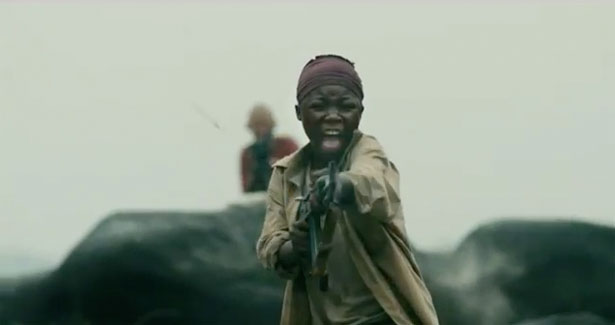
Photo: www.blogspot.com – Child Soldiers
Do you remember how difficult your life seemed when you were younger? How every single small inconvenience, whether it be a difficult test you didn’t study for or a time your parents said you couldn’t go out with your friends, felt like the end of the world? From complex hormone interactions to simple immaturity, adolescence is a tough period for most people, if not all.
Now imagine that the test you didn’t study for was instead a test of your marksmanship with an assault rifle—the target, a mutilated corpse, covered by a bloodied burlap sack. You can’t ask your parents for permission for anything because they’re dead. Your parents’ love and guidance has long ago disappeared from your mind, replaced with hatred and disgust for a people you don’t even know.
Sounds horrifying, right? Well to some this isn’t a bad dream or a horror movie, it’s reality. And with more than 250,000 child soldiers operating in some capacity for various organizations around the world, it’s no small or isolated occurrence.
Brought to the attention of the West by movies like Hotel Rwanda, Blood Diamond, and most recently the Netflix original, Beasts of No Nation, the training and usage of child soldiers is slowly becoming more common knowledge than it has been in decades past. But just like with any “popular” cause, the urgency with which we act on something as serious as this wanes and rises depending on how guilty the media can make us feel. But why do we feel guilty? Is there something about the Western world’s actions, or inaction, that makes it possible for something as heinous as child soldiers to exist in such large numbers? What can be done to stop, or at least stem, the violence?
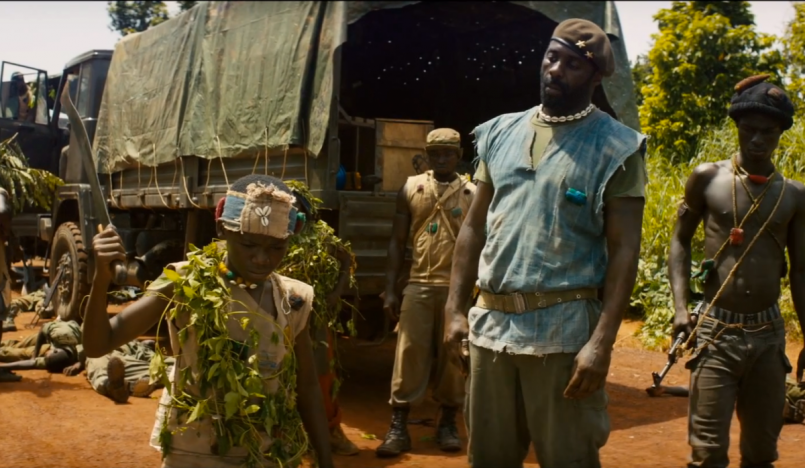
Photo: www.netflix.com
What are child soldiers and how are they used?
The internationally agreed definition for a child associated with an armed force or armed group (child soldier) is any person below 18 years of age who is, or who has been, recruited or used by an armed force or armed group in any capacity, including but not limited to children, boys and girls, used as fighters, cooks, porters, messengers, spies or for sexual purposes. It does not only refer to a child who is taking or has taken a direct part in hostilities.
(Paris Principles and Guidelines on Children Associated with Armed Forces or Armed Groups, 2007.) – www.child-soldiers.org
Like anything particularly upsetting and heinous, the answer is multi-faceted. Drugs, sexual abuse, resource wars, religious cleansing—they all play parts in the conflicts surrounding the drafting of children in the Middle East and Africa. Child soldiers can range in age from 5-16, with many of them dying well before their older counterparts. They are asked to kill, maim, rob, and intimidate groups of people that they might have never met or known about until just before they’re called to harm them. They are often paid in drugs, sex, and sometimes simply with necessities like food and water. Usually captured from rival tribes or societies, they are indoctrinated and threatened into participating in the causes of their captors, much like prisoners of war.
As stated in the reference above, not all child soldiers are sent to the front lines. Just like in any military conflict, some soldiers are used as scouts, while others are used as runners for ammo and supplies. But many children are sent to infiltrate villages before the rest of the army arrives because they can slip in and out without arousing anyone, unlike an adult would. The frequent unwillingness of rival troops to shoot children often comes at a deadly price as these soldiers are often as willing to shoot their enemies as the men who trained and beat them.
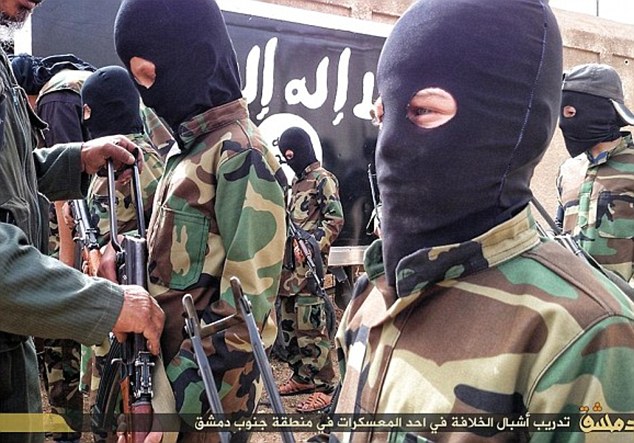
Photo: www.dailymail.co.uk – Child Soldiers
What can be done about child soldiers?
Although countries like the United States, Germany, Japan, France, etc. don’t use child soldiers in their own militaries, they do affect the actions of other nations, for better or for worse, in many direct and indirect ways.
- Conflict over diamonds and gems: Especially a problem in Africa, wars over diamonds and other valuable gems have erupted in response to the high value of these natural materials. Insuring that large jewelry companies do their best to only source their diamonds from conflict-free zones helps to cripple the various groups that employ and enslave child soldiers.
- Foreign aid: By providing foreign aid to countries, whether it be in the form of money, food, water, or shelter, larger and more developed nations can help stem the violence brought on by communities that lack these necessary resources.
- Counter-terrorism: In efforts to kill or apprehend known or suspected terrorists, governments sometimes don’t take into account the amount of blowback there might be from the community they invade in order to get the job done. By making sure that there is as little collateral damage and as few cases of mistaken identity when lethal force is authorized, governments can help make sure that radical military groups have a much harder time of turning young soldiers to their causes.
- Economic disparity: As countries develop, their tendencies towards violence and radicalization give way to industrialization, education, and technology. Without significant economic growth, populations stagnate and it becomes easier to dive into extreme measures of action like war. As other nations progress towards a better standard of living, with the help of foreign loans, education, and technology, child soldiers are less likely to be used.
These four suggestions by no means encapsulate everything that can be done in order to completely eradicate the use of child soldiers. Many more steps remain to be taken before something as widespread as this issue can be solved. But if we as a species can’t protect the youngest, most easily influenced, and most incapable amongst us, what hope is there for the rest of us? A child with an automatic weapon or a machete in his hand can not achieve as much as another who is instead allowed to hold a book or a loved one. Find more out about child soldiers here.

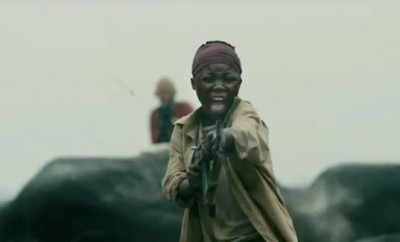
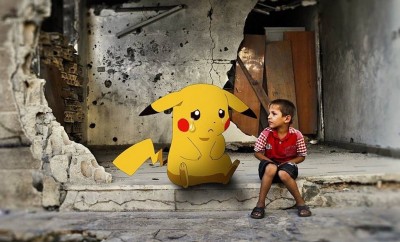
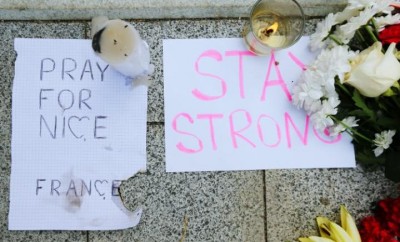

0 comments